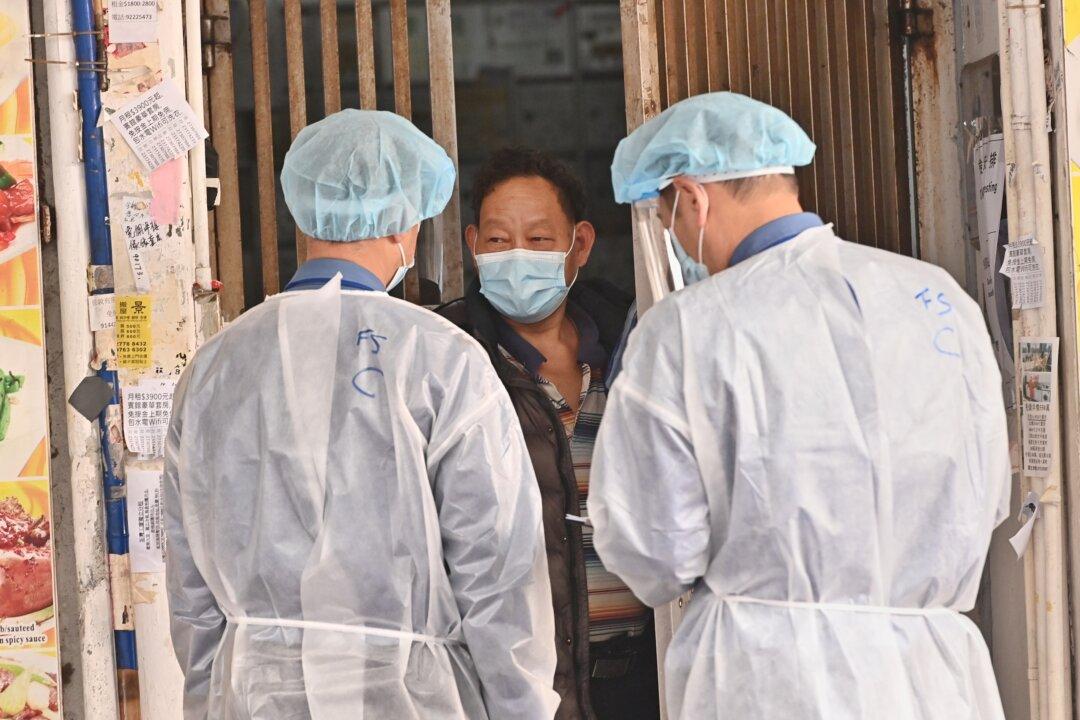A neighborhood in Hong Kong’s Kowloon Peninsula, a busy urban area, reopened the early morning of Jan. 25 after nearly 48 hours in lockdown over the CCP (Chinese Communist Party) virus.
Local authorities said the lockdown and mandatory testing measures were aimed at achieving the goal of zero CCP virus cases in the Jordan neighborhood of Yau Tsim Mong District, which had seen a spike in positive cases. From Jan. 1 to 20, 162 confirmed cases were found in 56 buildings in the neighborhood, according to a Jan. 23 Hong Kong government announcement.



